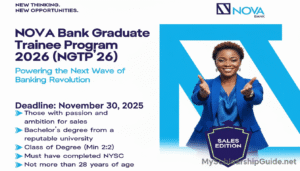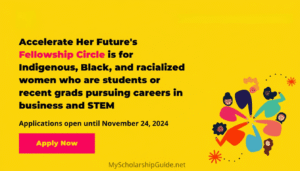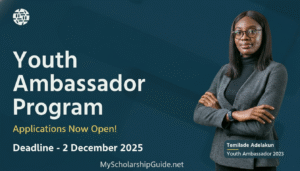
A Comprehensive Guide to Winning the Bank of Tanzania Mwalimu Julius Nyerere Memorial Scholarship Fund (2025/2026)
The pursuit of higher education is a journey that often requires significant financial investment, and for many talented Tanzanian students, this can be a major barrier. But what if a scholarship didn’t just cover your fees, but also honored the legacy of a national hero and invested directly in your potential to shape the future of your country? That’s precisely what the Bank of Tanzania Mwalimu Julius Nyerere Memorial Scholarship Fund offers.
This isn’t just any scholarship; it is a prestigious, highly competitive award designed to identify and empower the next generation of leaders in key fields critical to Tanzania’s development. Named in honor of the Father of the Nation, Mwalimu Julius K. Nyerere, this scholarship recognizes academic excellence and a commitment to building a stronger Tanzania.
Navigating the application process for such a coveted award can feel daunting, but you are not alone. This comprehensive guide is designed to be your roadmap to success. We will walk you through every step, from understanding the core values of the scholarship committee to meticulously preparing each component of your application. By the end of this guide, you will be equipped with the knowledge and strategy to craft an application that not only meets the requirements but truly stands out from the crowd. Let’s get started on your journey to becoming a Mwalimu Julius Nyerere Memorial Scholar.
The Foundation: Understanding the Mwalimu Julius Nyerere Memorial Scholarship Fund
To win this scholarship, you must do more than simply meet the criteria; you must demonstrate a profound understanding of its purpose. The Bank of Tanzania Mwalimu Julius Nyerere Memorial Scholarship Fund is an investment in human capital for national development. The selection committee isn’t just looking for high grades—they’re looking for future leaders.
Deep Dive into the Scholarship’s Values
The official criteria and the legacy of Mwalimu Julius Nyerere himself give us clear clues about what the committee values most. Their mission is rooted in national development, and your application must reflect this understanding. Here are the core values you need to internalize:
- Academic Excellence: This is non-negotiable. The scholarship is explicitly granted to “top performers.” This is the first filter. Your Division One results at ACSEE or your First Class/Upper Second Class honors with a GPA of 4.0 or higher are your ticket to the table. Don’t take this for granted—every part of your application must reinforce this narrative of academic rigor and intellectual curiosity.
- National Human Capital Development: The scholarship is a tool to build capacity within Tanzania. The chosen fields of study—Science, Mathematics, IT, Economics, Accounting, and Finance—are not random. They are the bedrock of a modern, developing economy. Your application must clearly articulate how your chosen field of study will contribute to Tanzania’s progress. You are not just a student; you are a future asset to your country.
- Promotion of Women in STEM: This is a particularly crucial value, highlighted by the dedicated “Category A” for female students in Science and Mathematics. This shows a deliberate effort to address a historical imbalance and nurture female leadership in these critical sectors. If you are a female applicant, lean into this. Your application should tell a story that goes beyond your grades, showcasing your passion for your field and your potential to inspire other young women.
- Merit-Based Selection: The process is described as “rigorous.” This means the committee will scrutinize every detail of your application. They are looking for authenticity, consistency, and a well-thought-out plan. You can’t afford any shortcuts or half-hearted attempts. Your application must be a polished, professional, and powerful representation of your best self.
The Ideal Applicant Profile
So, who is the ideal candidate for the Bank of Tanzania Mwalimu Julius Nyerere Memorial Scholarship Fund? They are a student with an impeccable academic record who is also deeply committed to using their education for the betterment of Tanzania.
- For Undergraduate Applicants: You are a recent top-performing ACSEE graduate, not just with a Division One but with a clear passion for a field like medicine, engineering, finance, or economics. You understand that your degree is a vehicle for change and you can articulate what that change looks like. For female applicants, you embody the spirit of empowerment and see yourself as a pioneer in your field.
- For Master’s Applicants: You are an academic powerhouse with a GPA of 4.0 or higher, and you have a clear vision for your future. You’ve already demonstrated your potential at the undergraduate level, and you can convincingly explain how a master’s degree will allow you to make a more significant contribution to your field and to Tanzania. You are ambitious, driven, and ready for advanced academic challenges.
Building Your Strategic Narrative
Your application should tell a cohesive, compelling story that aligns with the scholarship’s values. Think of it as a personal brand you are building for the committee. Every document you submit—your application form, your transcripts, and especially any personal statements or essays—should be a chapter in this story.
- Connect Your Past to Their Mission: Don’t just list your achievements. Frame them within the context of the scholarship’s goals. For example, if you excelled in a science competition, explain how that experience ignited your desire to solve a specific national problem in that field.
- Project a Vision for the Future: This is where you connect your personal ambitions to Tanzania’s future. How will your degree in Accounting help improve financial accountability in the public sector? How will your master’s in IT help drive technological innovation and economic growth? Be specific and ambitious.
- Show, Don’t Just Tell: Instead of saying, “I am committed to national development,” describe a specific experience or a personal project that demonstrates this commitment. This makes your application memorable and authentic.
Essay Mastery: A Deep Dive into the Mwalimu Julius Nyerere Memorial Scholarship Essays
While the user input indicates that essay prompts are “not explicitly stated,” they are almost certainly integrated into the application form’s requirements as open-ended questions or personal statements. The Bank of Tanzania committee wants to hear your voice and understand your motivations. Based on the scholarship’s values, we can predict the likely themes of these questions. Here’s how to prepare for the most probable prompts.
Anticipated Prompt 1: The “Why This Field” Question
Deconstructing the Prompt: This question will ask you to explain your passion for your chosen field of study. It’s not just a test of your interest; it’s a test of your vision. The committee wants to know why you chose a field that is a national priority and how you plan to use it to contribute to Tanzania’s future. They are looking for depth, not just surface-level enthusiasm.
Brainstorming Strategies:
- Personal Anecdote: Think about a specific moment or experience that sparked your interest. Was it a high school project, a book you read, a teacher who inspired you, or a problem you observed in your community? Start your essay with this story to immediately capture the reader’s attention.
- Connect to National Needs: Research Tanzania’s current challenges and opportunities in your field. For example, if you’re studying IT, talk about the need for digital transformation in rural areas. If you’re studying Economics, discuss the role of small and medium-sized enterprises (SMEs) in job creation.
- Future Vision: Imagine yourself 10-15 years from now. What specific impact do you want to have? Do you want to work at the Bank of Tanzania, a national research institution, or start your own company? Be ambitious but realistic.
Common Mistakes to Avoid:
- Being Vague: Don’t just say, “I love science.” Instead, say, “I am fascinated by the biological processes of disease, which is why I am pursuing a degree in medicine to address public health challenges in my community.”
- Focusing Only on Yourself: While your story is important, the essay must pivot to how your success will benefit others, particularly your country.
- Rehashing Your CV: The committee can see your grades and courses on your transcripts. Use this essay to add color and context to those achievements.
Detailed Sample Essay Outline:
- Paragraph 1 (The Hook): Begin with your personal anecdote. A specific, compelling story about a moment of inspiration. For a science student, this could be a lab experiment that went wrong but taught you a valuable lesson.
- Paragraph 2 (Connecting the dots): Bridge your personal story to your academic journey. Explain how your high school performance (e.g., your Division One results) was a direct result of this passion and how it prepared you for a specific degree program.
- Paragraph 3 (The National Context): Explicitly link your chosen field to one of Tanzania’s national development goals. This is where you demonstrate your awareness and strategic thinking. Use the Bank of Tanzania Mwalimu Julius Nyerere Memorial Scholarship Fund as a framework for your ideas.
- Paragraph 4 (Your Future Vision): Outline your long-term goals and how this scholarship will enable you to achieve them. Be specific about the kind of work you want to do and the impact you hope to make.
- Conclusion: Reiterate your gratitude for the opportunity and your commitment to honoring Mwalimu Nyerere’s legacy through your future contributions. End with a powerful, forward-looking statement.
Anticipated Prompt 2: The “Overcoming Challenges” Question
Deconstructing the Prompt: The committee knows that success isn’t always a straight line. This question, if asked, would seek to understand your resilience, problem-solving skills, and character. It’s a chance to show maturity and a growth mindset.
Brainstorming Strategies:
- Define a Meaningful Challenge: Choose a challenge that is relevant to your academic or personal growth. This could be a difficult subject you had to master, a leadership role you struggled in, or a personal setback you overcame. Avoid common clichés like “I’m a perfectionist.”
- Focus on the Solution: The challenge is only half the story. The bulk of your essay should be about what you did to overcome it. What strategies did you employ? Did you seek help, change your approach, or persevere?
- Show the Impact: What did you learn from this experience? How did it change you for the better? How will this lesson make you a more successful student and a more effective future leader?
Common Mistakes to Avoid:
- Blaming Others: Take full ownership of the situation. This shows maturity and accountability.
- Dramatizing the Problem: Keep the focus on your actions and the lessons learned. The committee isn’t looking for a sob story.
- A Trivial Challenge: The challenge you choose should be significant enough to demonstrate genuine growth.
Detailed Sample Essay Outline:
- Paragraph 1 (The Challenge): Briefly introduce the specific challenge you faced. Set the scene and explain why it was difficult.
- Paragraph 2 (Your Actions): Detail the steps you took to address the problem. This is where you showcase your character and determination.
- Paragraph 3 (The Lesson Learned): Explain what you learned about yourself and the world as a result of this experience. Connect this lesson to the values of the Bank of Tanzania Mwalimu Julius Nyerere Memorial Scholarship Fund—for instance, how it taught you the value of perseverance in pursuit of excellence.
- Conclusion: Conclude with a forward-looking statement about how this experience has prepared you to face the challenges of university life and beyond.
Beyond the Essay: A Guide to Other Mwalimu Julius Nyerere Memorial Scholarship Fund Components
The application form is a holistic package. Each component is a piece of the puzzle, and they must all fit together to present a compelling portrait of who you are.
Letters of Recommendation
Who to Ask: Choose recommenders who know you well and can speak to your academic achievements and character. For undergraduate applicants, this means your Advanced Level Secondary School teachers, especially in Science or Mathematics. For master’s applicants, choose professors from your undergraduate program who taught you in your major field. They should be able to comment on your academic performance, work ethic, and potential for success.
How to Ask:
- Ask Early: Give them plenty of time—at least a month—before the deadline.
- Provide Everything They Need: This is the most important step. Don’t just ask them to write a letter. Provide them with a concise packet of information:
- Your full name and the name of the scholarship.
- A brief summary of the scholarship’s mission and values.
- Your transcript and CV/resume.
- A list of your key achievements and a paragraph about your academic and career goals.
- A “hot tip”: Provide them with a bullet point or two of specific stories you hope they will include. For example, “I hope you can mention my leadership role in the Science Club and how I organized the inter-school competition.”
- Follow Up Gracefully: Send a polite reminder a week before the deadline and a thank-you note afterward, regardless of the outcome.
The Interview (If Applicable)
While the user input does not explicitly state an interview, many competitive scholarships use this as a final step. Be prepared. The interview is your chance to bring your application to life.
Likely Questions:
- “Tell us more about your career goals and how they align with national development.”
- “What specific challenges do you see in your field in Tanzania and how do you envision solving them?”
- “What is your understanding of Mwalimu Julius Nyerere’s legacy and how do you plan to honor it?”
- “Describe a time when you faced a significant academic or personal challenge and how you overcame it.”
Preparation Strategies:
- Practice Your Answers Aloud: Don’t just think about what you’ll say—practice saying it. Record yourself and listen back to refine your message.
- Research the Bank of Tanzania: Show you’ve done your homework. Mention specific BOT initiatives or publications that relate to your field.
- Prepare Your Own Questions: Asking thoughtful questions at the end shows genuine interest. For example, you could ask about the support system for scholars or the alumni network.
Transcripts & Academic Records
These documents are the foundation of your application. Ensure they are official, up-to-date, and certified as required. If your transcripts show a dip in grades at any point, be prepared to address it in a cover letter or personal statement. Your job is to present a narrative of academic excellence, and these documents must support it.
Other Components
The application form itself is a critical component. Fill it out completely and accurately. Pay close attention to all instructions. Every detail matters, from using block letters to the format of your submission email. Your meticulousness here shows respect for the process and reflects the very values of rigor the committee is looking for.
Final Steps: Your Application Submission Checklist
You’ve done the hard work of preparing each component. Now, it’s time for the final push. This is where you move from a good application to an unbeatable one.
The Power of Proofreading
You’ve heard it a thousand times, but it bears repeating: proofread everything. A single typo or grammatical error can undermine your entire application. Read your essays and application form aloud to catch awkward phrasing. Ask a trusted friend, family member, or mentor to read everything over with a fresh pair of eyes. This is not a step to be rushed.
Cohesion Check
Before you hit “send,” take a step back and read all your materials together. Do they tell a consistent story? Does your personal statement align with your academic record and the values of the Bank of Tanzania Mwalimu Julius Nyerere Memorial Scholarship Fund? Is there a clear thread connecting your past achievements to your future aspirations? The goal is a unified, powerful message.
Deadline Management
The deadline for the Bank of Tanzania Mwalimu Julius Nyerere Memorial Scholarship Fund is an immovable object. The user input indicates that submissions are via email, and the deadline will likely be around late August. Do not wait until the last minute. Technical issues, slow internet, or human error can and will happen. Plan to submit your complete application at least 24-48 hours before the deadline. This shows professionalism and respect for the committee’s time.
Resources & Conclusion
Preparing for the Bank of Tanzania Mwalimu Julius Nyerere Memorial Scholarship Fund is a rigorous process, but it is one that can profoundly change your life. By understanding the committee’s values, crafting a powerful narrative, and meticulously preparing every component of your application, you are not just applying for a scholarship—you are making a compelling case for your future as a leader in Tanzania.
Remember, Mwalimu Nyerere’s legacy is one of unwavering commitment to his country. The scholars chosen for this fund are expected to carry that torch forward. Your application is your opportunity to show the committee that you are ready and worthy to do so.
We wish you the very best of luck. Now, go and make your country proud.
Official Scholarship Link:
Referenced Web Sources:
- Bank of Tanzania Scholarships Section
- Public notices in national newspapers and BOT branch offices.
About The Author
Disclaimer
Unless otherwise stated, www.myscholarshipguide.net is not affiliated with any of the scholarship providers listed on our website, nor do we process applications on behalf of any organization. The content provided is for informational purposes only, and visitors are encouraged to use this information at their own discretion.







